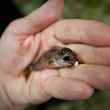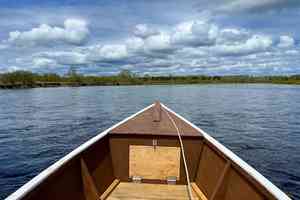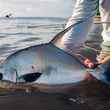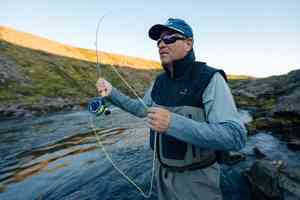Studies that endeavor to estimate the values of a particular fishery aren't rare. They form the basis for a number of planning and policy decisions, many of which pit conservation against development. And these studies often produce big numbers, as they calculate the cumulative values of immense commercial fishing operations, sport fishing and tourism, and more. When numbers for these diverse fisheries reach into the hundreds of millions or even billions, as was the case with the recent results of a study on the value of Bristol Bay, Alaska's fishery, most people aren't overly shocked. However, when a virtually purely recreational fishery like that of the Florida Keys bonefish, tarpon and permit flats is deemed to be worth over $400 million each year, it serves to turn some heads.
According to the study, which was commissioned by the Bonefish and Tarpon Trust, the recreational sport fishery that surrounds the bonefish, tarpon and permit of the Florida Keys generates an estimated $427 million annually. The study considered the multiplier effects of angler expenditures, the wages and salaries generated by angler spending, the jobs created, and the federal and state taxes resulting from flats fishing expenditures. Data was collected through surveys of licensed resident and non-resident anglers and flats fishing guides.
The purpose of the study was to "build an understanding for the need to manage these species sustainably, restore declining species, and protect habitat that is crucial to the spawning, rearing and other important components of a species life history. Determining the economic impact of the Florida Keys flats fishery will help build the case for the importance of science-based management rather than the anecdotal and politically-based actions flats species have generally received to this point."
According to Dr. Aaron Adams, Director of Operations at the Bonefish and Tarpon Trust, "the economic data from this and similar studies reinforces the importance of these recreational fisheries to the overall economic health of the state and even the region. Since we know that healthy habitats are required to support healthy recreational fisheries, these studies help to justify BTT’s work on habitat and fisheries conservation. And since we know that the Florida Keys fish populations are connected to populations throughout the region, this work has even wider implications.”

































Comments